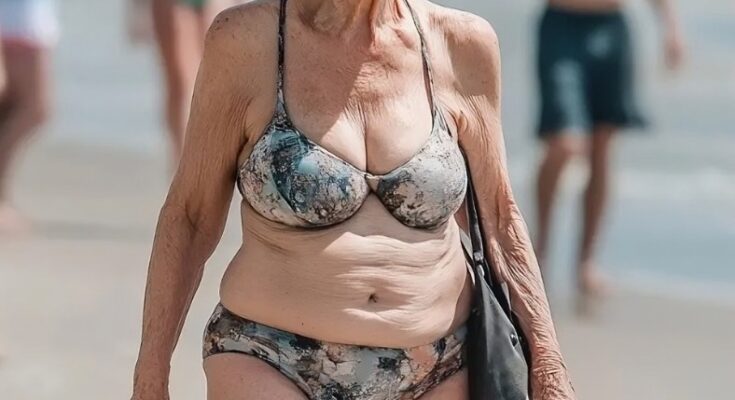Women – don’t get larger, don’t get older, don’t have fun, don’t dare to wear a bikini
Every summer, like clockwork, the media lights up with images of women on holiday, with every detail scrutinized under the sun. Are they in bikinis? Are they too old, too big, or too comfortable in their skin? Cue the uninvited commentary: “Why is she wearing a bikini at that age?” or “Shouldn’t she be in a one-piece?” Unfortunately, this ritual has become a hallmark of the season. From paparazzi shots to scathing headlines, this relentless shaming perpetuates an unrealistic standard. But why is this the norm, and what does it say about society’s relationship with women’s bodies?
The Annual Spectacle of Body Shaming

Let’s call it what it is: a spectacle. During the summer months, certain media outlets seem to relish the chance to parade images of female celebrities in swimsuits. These aren’t just photos; they’re ammunition. Paparazzi snap these women in vulnerable moments—adjusting a towel, stretching, or bending over—and they’re often captured from unflattering angles to amplify imperfections. If the perfect shot isn’t there, the right lens and a bit of editing can make it look like it is.
But why? Why do these images gain so much traction, and why is there such a public appetite for seeing women, particularly those who dare to age or exist above a size eight, ridiculed for simply living their lives?
Why Women’s Swimwear Choices Are Everyone’s Business
Women’s bodies have long been considered public property. When a famous woman steps out in a bikini, her body is dissected for the world to see. It’s not about the fashion statement; it’s about sending a message. There’s a lingering expectation that women must adhere to a certain body type and age gracefully—if at all. Deviating from these unspoken rules means opening oneself up to ridicule and criticism.
The Pressure of “Bikini-Ready” Bodies
Every summer, we hear about achieving that elusive “bikini body.” The implication is clear: only certain bodies are worthy of wearing a bikini, and if you don’t fit that mold, you should cover up. This fixation on the “bikini body” has led to an entire industry of fad diets, intense workout regimens, and wellness products marketed specifically toward women. The undercurrent here is that women must continually work to meet society’s physical standards, or else risk being deemed “unworthy” of participating in summer fun.
Age and the Bikini Double Standard
While the summer takedown photo-dump does occasionally feature men, the focus is overwhelmingly on women. Older male celebrities in swim trunks rarely face the same vitriol. A male celebrity can go gray, gain weight, or show signs of aging, and it’s largely accepted, even celebrated. But if a woman dares to age, especially in a bikini, the narrative shifts. The British media has a peculiar way of showcasing these women under the guise of admiration while subtly (or not-so-subtly) encouraging readers to sneer.




